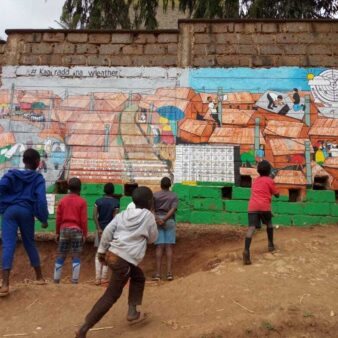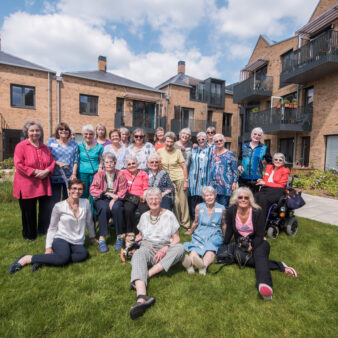The project in practice
Back in February 2022, when the Russian Invasion of Ukraine started, internally displaced people had been sheltering in schools and other educational and sport facilities indefinitely because of the lack of social housing opportunities. That is why CO-HATY was created: to provide good-quality interim housing in the region for those fleeing the invasion.
The project works with local governments and a growing network of agencies to repair and convert large, abandoned post-Soviet municipal buildings into emergency accommodation, which can then be transitioned to flexible social housing once the war has ended. From March 2022 to August 2023, CO-HATY renovated four large buildings, providing 640 displaced people with more adequate homes.
The project was co-founded by METALAB, a non-profit organisation and ‘urban laboratory’, and Urban Curators, an independent agency from Kyiv working in the field of urbanism, architecture and urban management.
Before the war, METALAB was involved in research and product design around public spaces, but the war has made it change its focus. Through CO-HATY, it now provides well-designed, cost-efficient emergency housing by swiftly repurposing existing buildings. The project also aims to empower people who have gone through significant trauma whilst demonstrating an alternative model for developing social housing after the war.
The renovated buildings were selected for their proximity to city-centre amenities and connections to parks and green spaces. Despite being empty, the buildings which were mostly constructed between 1960 and 1980, are in relatively good condition. Generally, renovations include replacing the heating, plumbing and sewerage systems, installing new electrical wiring and bathrooms, painting, furnishing, and providing household appliances. Residents have their own units but share communal living spaces.
Renovating and delivering housing during conflict is extremely challenging and CO-HATY has faced unexpected problems. For example, supply chains are sometimes cut-off, which makes buying materials difficult, and attacks on Ukraine’s energy system in winter 2023/2024 have led to regular power cuts at CO-HATY’s construction sites. Some CO-HATY team members decided to join the military. Despite these difficulties, the four building renovations completed between March 2022 and August 2023.
METALAB raises funds, provides architectural and urban expertise, manages the construction process and designs furniture for the new homes. The organisation has quickly established a network of more than 25 partners that help deliver the project, including housing non-profits, legal organisations, design studios, social services, humanitarian organisations, real estate specialists and municipal agencies. METALAB works closely with local government departments, which is not only vital to the renovations, but can potentially help establish better housing rights and regulatory change.
The selection of residents depends on who owns the building being renovated. In most cases, it is based on the local government’s housing strategy though CO-HATY has some influence on who will live there as well, which is used to give living space for volunteers working on building renovations.
Social impact
In Ukrainian “haty” means “houses” and “cohaty” means “to love” and displaced people are very much at the heart of the design and renovation of the housing. Where possible, future residents (including those with specific needs, such as pensioners, families with children and people with disabilities) are involved in workshops which shape the design of the buildings. This involvement cultivates a sense of empowerment and ownership and helps to build a community among individuals who have been forced to leave their homes in other regions of Ukraine. Within their new communities they can participate in gardening, social events and house cleaning.
CO-HATY involves residents and non-residents with backgrounds in construction and the built environment to work on the renovations. Once the construction is complete, those that are residents help to manage and maintain the space in collaboration with other communal enterprises in the city.
Local businesses are also involved in making a substantial amount of furniture. Through the project, three people are now employed as accommodation managers, while five others have become members of the CO-HATY team.
Additionally, the project benefits municipal government departments, health and social care providers, humanitarian and civil society organisations, which are all under significant pressure in the western part of Ukraine.
METALAB promotes the right to decent housing for displaced people and is in a working group with the City of Ivano-Frankivsk to inform its municipal strategy on urban development and integration, including the ways in which emergency housing projects can become social housing development programmes.
Environmental impact
By repairing and renovating existing buildings, the project saves almost 50% embodied carbon (the amount of carbon emitted during new-build construction). Homes are furnished with charitable donations of second-hand furniture, kitchen items and other household goods, where possible. METALAB uses its own construction facilities and other local suppliers to produce any new materials, further reducing its carbon footprint.
Funding
The finance for CO-HATY comes from a diverse network of funders and charitable donations.
The breakdown by project is as follows:
- pilot project in Ivano-Frankivsk housing 170 people: 5,176,941 UAH ($140,000 USD);
- converted kindergarten (Sadok) in Ivano-Frankivsk housing 140 people: 9,244,537 UAH ($250,000 USD);
- converted hotel in Ivano-Frankivsk housing 80 people: 10,353,882 UAH ($280,000 USD);
- converted student dormitory in Zinkivtsi village, Khmelnytskyi region, housing 250 people: 23,296,234 UAH ($630,000 USD).
International funders and supporters include: IM, Swedish Development Partner; MitOst; Raumpioniere; Danish Refugee Council; United States Agency for International Development (USAID); International Organization for Migration; People in Need; Polish Aid; and RE-WIN, among others.
CO-HATY received funding from the German Federal Foreign Office in partnership with humanitarian organisation Sign of Hope, to renovate another former student dormitory in 2023. Further funding from the United Nations is being applied for to become a partner for emergency shelter provision, durable housing and adequate accommodation for internally displaced people.
The hope is that more sustained support will come from city councils across Ukraine, following METALAB’s work on its urban development strategy.
Transfer and expansion
CO-HATY is scaling up in Ukraine, with plans to renovate four more buildings in 2023 (7 in total), which it hopes will become social housing when the conflict has ended.
While CO-HATY cannot provide a home for the millions of displaced people in Ukraine, METALAB is increasingly working with organisations helping internally displaced people on a bigger scale, including International Organization for Migration and GIZ (German Agency for International Cooperation). It has also applied to become a member of Regional Shelter Cluster to contribute its learnings internationally and advocate for its alternative housing model.
METALAB believes CO-HATY’s experience could be useful in crisis situations and in contexts where more social housing is needed. The model could also be applied in cities undergoing rapid urbanisation and migration, where local authorities need support to provide people with decent and safe homes.
In just 18 months, the CO-HATY project has had massive impact, providing hundreds of displaced people with good-quality and environmentally sound emergency homes. Through the project’s partnership work with the municipal government, by focusing on the long-term use of renovated buildings, and shifting the housing narrative away from private ownership, vulnerable people in post-war Ukraine will have greater access to decent, safe, affordable and permanent homes.
Download your free copy of the full project summary

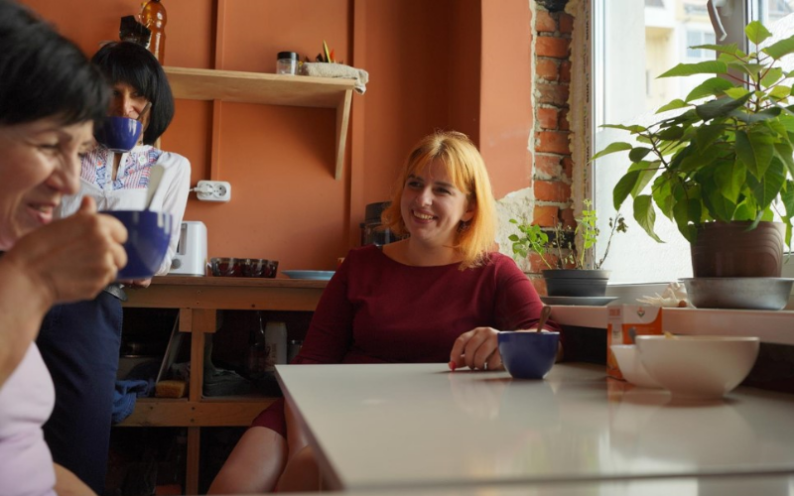
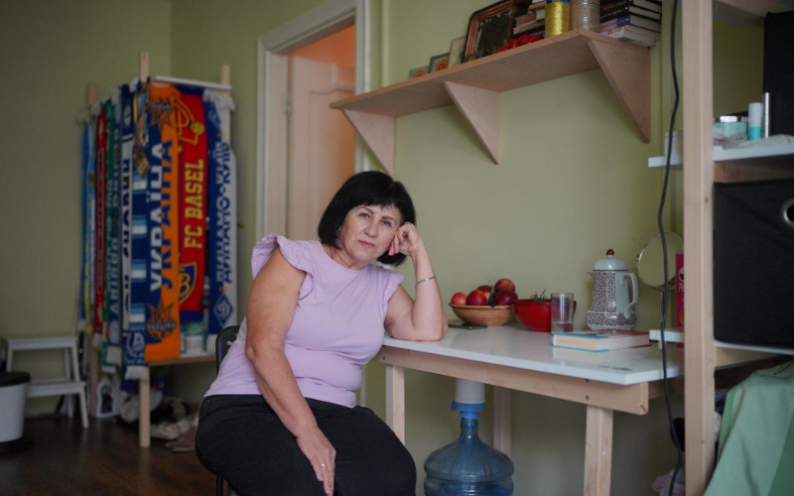
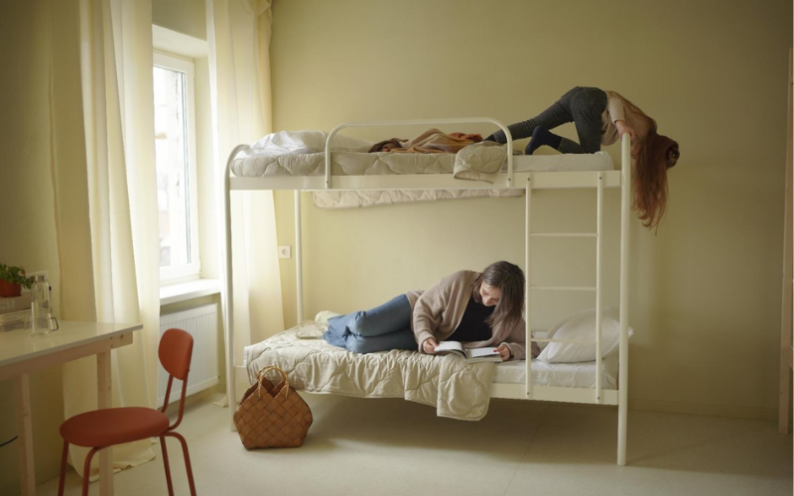
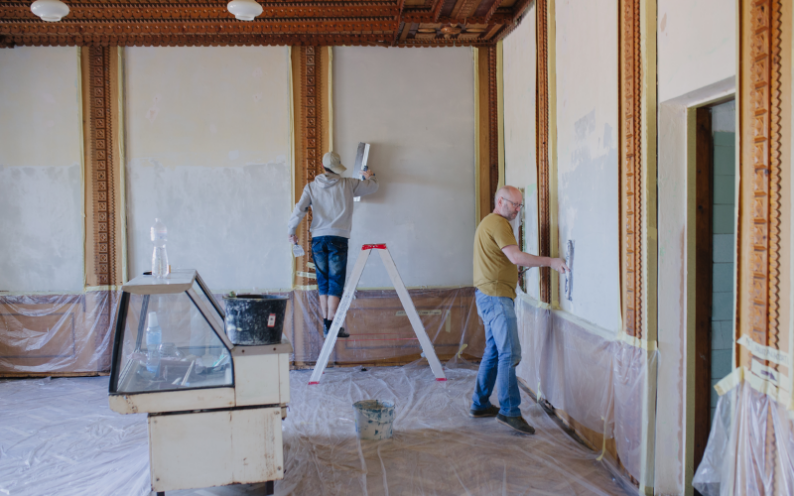
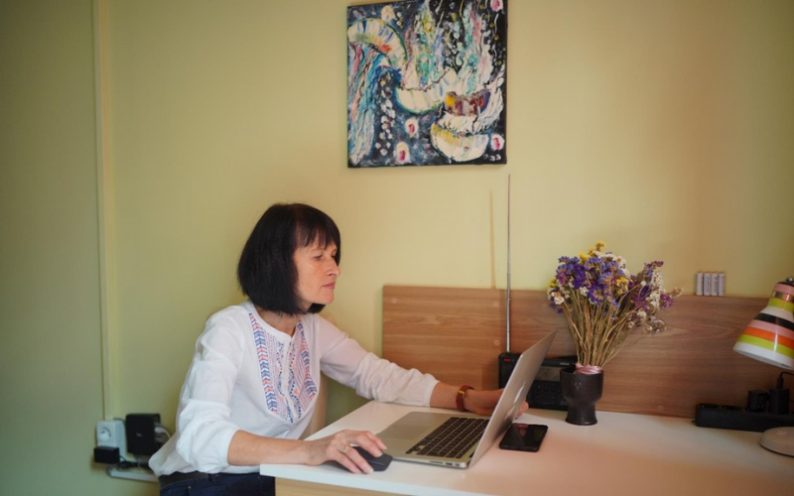
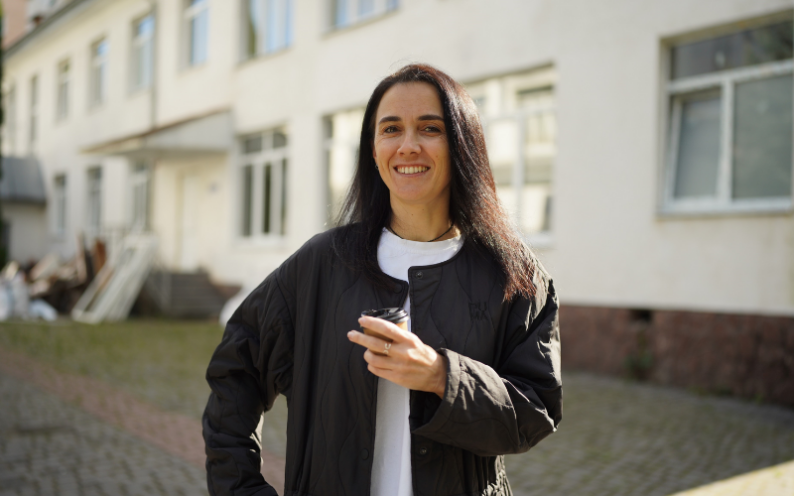

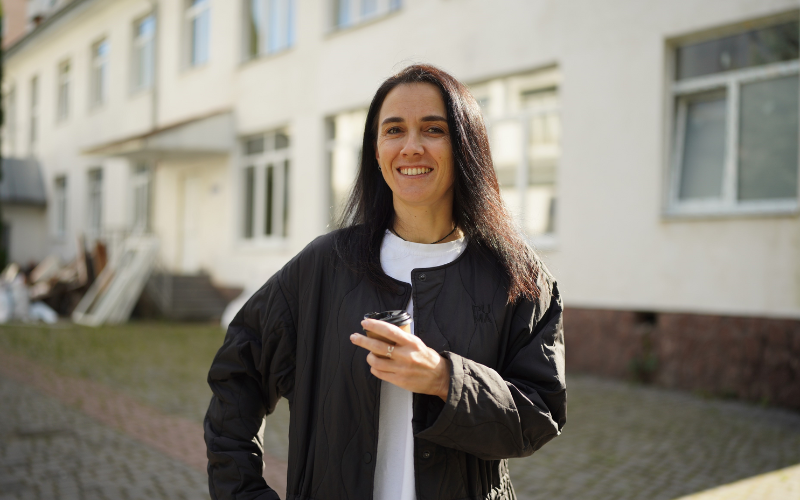
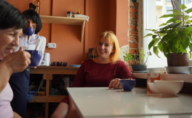
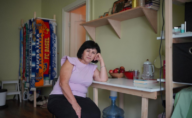
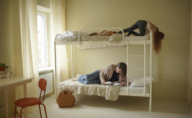
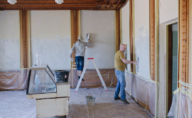
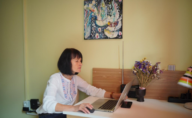
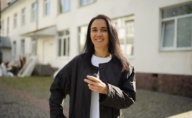
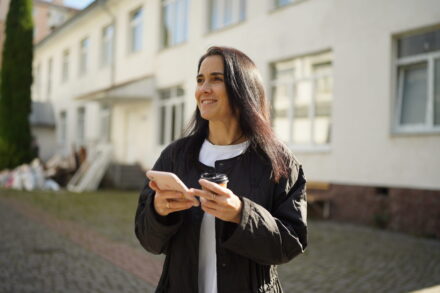
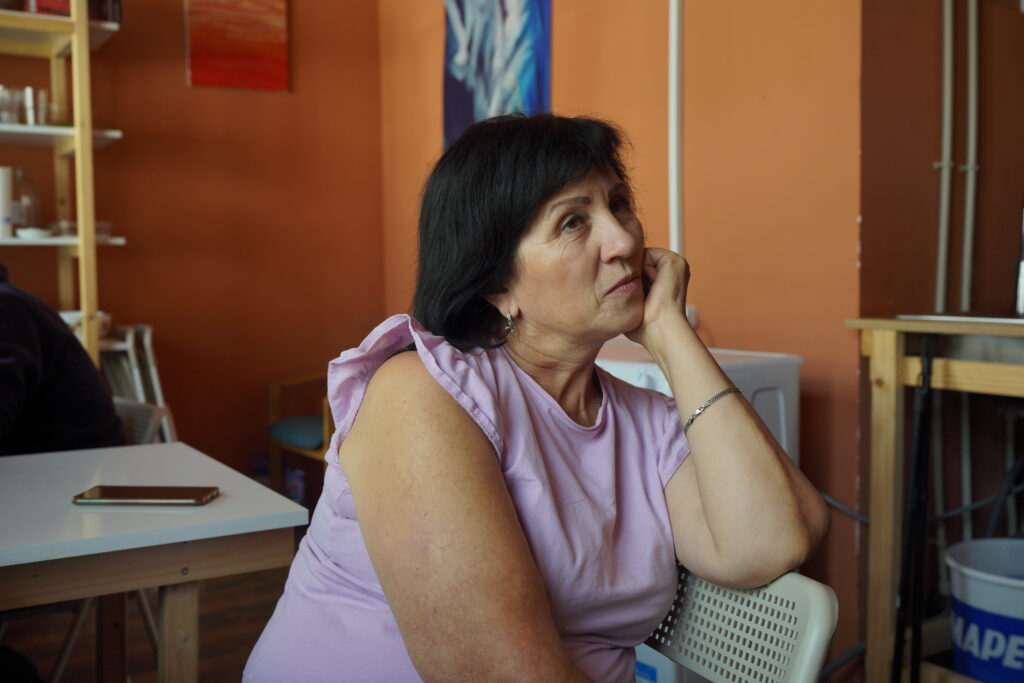
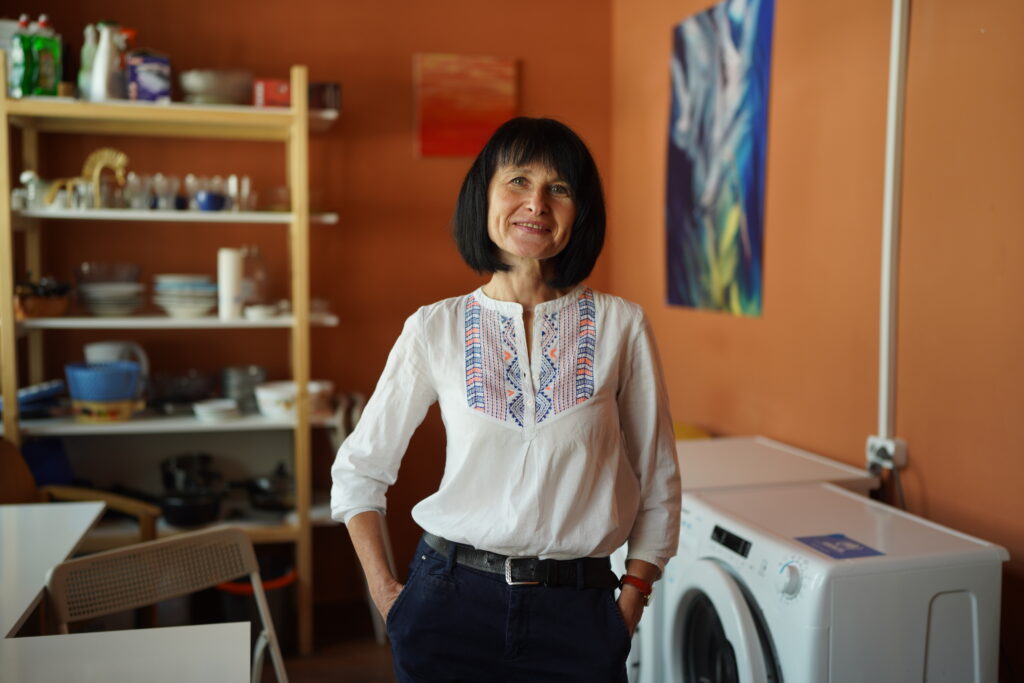 Svitlana Didenko, a 57-year-old head of department in the executive directorate of the Social Insurance Fund, was evacuated from Berislav in the Kherson region.
Svitlana Didenko, a 57-year-old head of department in the executive directorate of the Social Insurance Fund, was evacuated from Berislav in the Kherson region.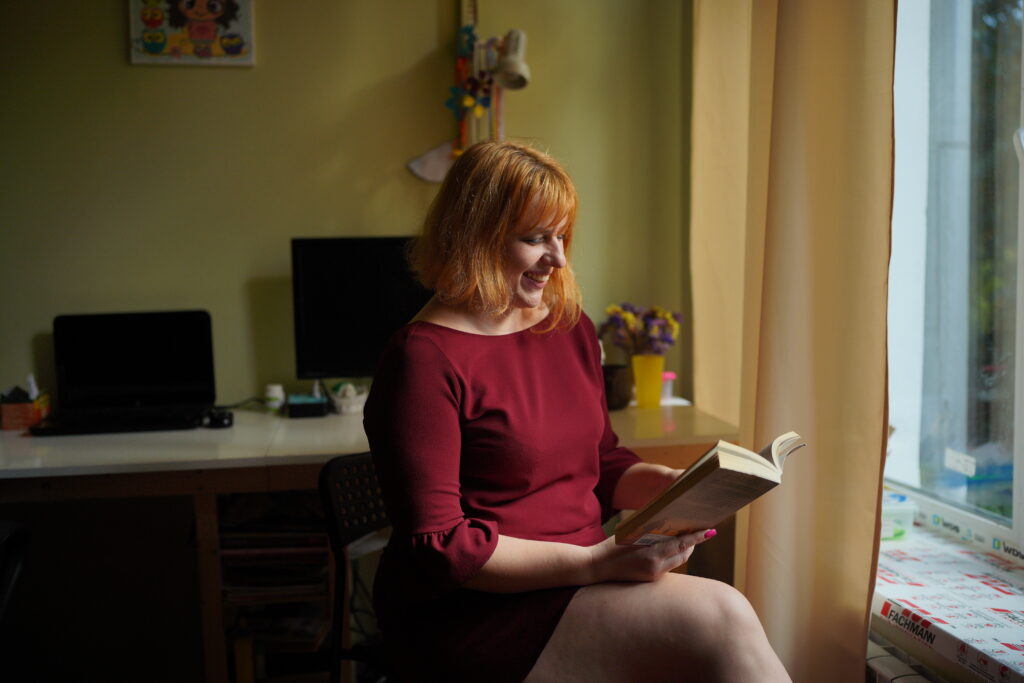 Olena Polous, a 38-year-old showcase decorator from Kharkiv, had a stable life until the Russian full-scale invasion forced her to evacuate. She was employed and had the financial means to take vacations with her loved ones. Unfortunately, because of the war, she had to leave her home and move to a different city.
Olena Polous, a 38-year-old showcase decorator from Kharkiv, had a stable life until the Russian full-scale invasion forced her to evacuate. She was employed and had the financial means to take vacations with her loved ones. Unfortunately, because of the war, she had to leave her home and move to a different city.